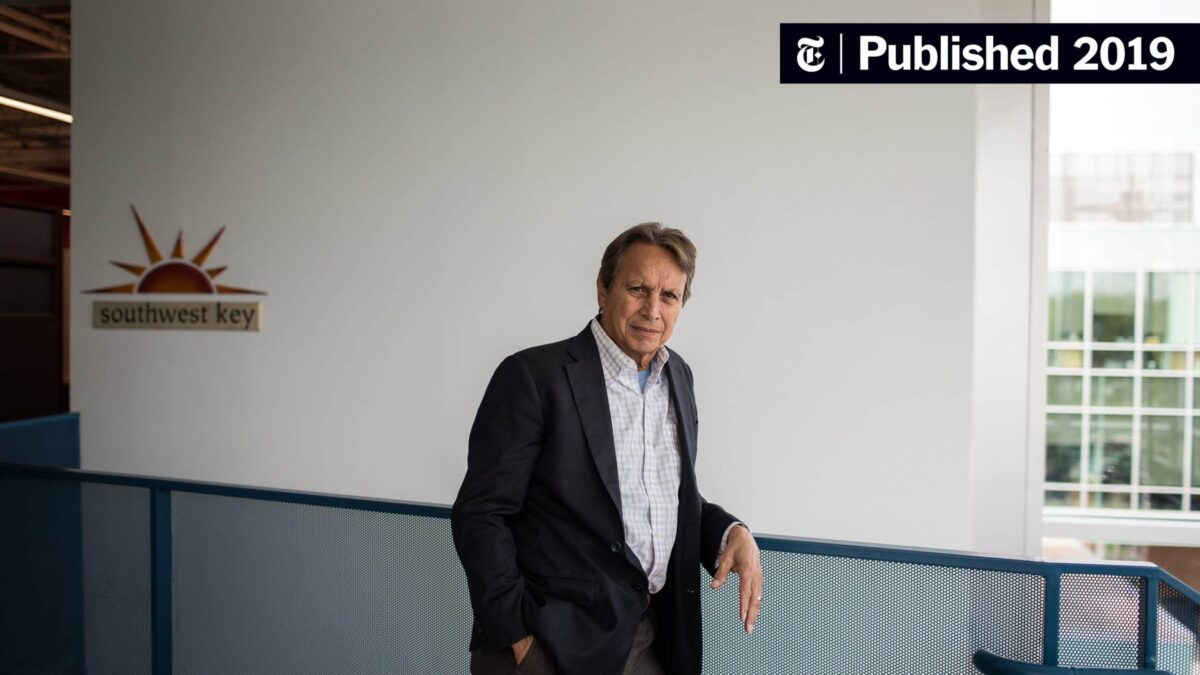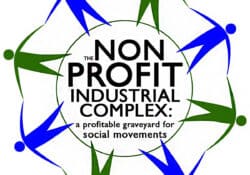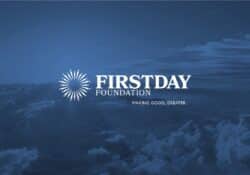

by The Constitutional Republic | Feb 06, 2025
Case Study: Southwest Key Programs Network—A Well-Oiled Machine of Influence and Self-Dealing
Southwest Key Programs (SWK) is a textbook example of a nonprofit exploiting an alliance of entities to expand influence, secure contracts, and sidestep accountability. Founded in 1987, SWK—a 501(c)(3) nonprofit based in Texas—claimed to serve at-risk youth but became best known for running migrant child detention centers, a business model that funneled hundreds of millions in federal grants into the organization.
By the late 2010s, SWK had transformed into “the nation’s largest network of shelters for migrant children,” holding thousands of minors in custody while amassing a staggering flow of taxpayer dollars. However, rather than being a humanitarian operation focused on child welfare, SWK functioned as a financial juggernaut, using a complex network of entities to maximize revenue, evade restrictions, and entrench its leadership in political circles.
Structural Alliances: A Web of Financial Engineering
While Southwest Key Programs, Inc. is the primary nonprofit, it created multiple affiliated ventures designed to obscure financial flows and maintain control over vast public funds.
Promesa Public Schools: A Convenient Financial Laundering Mechanism
SWK operates a network of charter schools under the Promesa brand, which, on the surface, appears to be an extension of its youth mission. However, the schools also served as a financial conduit, allowing SWK to circumvent funding restrictions and channel money in ways that would otherwise be prohibited.
By 2017, 99% of SWK’s $300 million budget came from U.S. Health and Human Services (HHS) grants for unaccompanied minors. Since federal rules cap executive salaries paid with grant funds, SWK routed its executive compensation through the charter school network and other non-grant sources to sidestep these limits.
This scheme enabled CEO Juan Sanchez to collect an astonishing $1.5 million salary in 2017, with mid-level executives pocketing salaries far beyond the allowable federal caps. This was not about retaining top talent—it was about ensuring those at the top could extract as much wealth as possible from public funds.
For-Profit Affiliates: Exploiting Public Money for Private Gains
SWK did not stop at charities and schools. In 2006, it quietly launched a for-profit subsidiary—Southwest Key Green Energy & Construction—to handle renovation and facility work for its shelters. While this may sound like an efficiency move, it actually opened the door for massive conflicts of interest.
Investigations revealed that SWK was renting some of its shelter properties from a private real estate firm in which CEO Juan Sanchez had a financial stake. In other words, Sanchez was collecting rent from his own nonprofit—paid for with taxpayer money.
Further scrutiny exposed another deeply troubling practice: SWK loaned portions of its surplus cash to private real estate developers, effectively acting as a financial institution using taxpayer funds. These transactions blurred the line between charity and business, leading to serious regulatory concerns about self-dealing and inurement (private enrichment by nonprofit executives, which is illegal).
The New York Times succinctly summarized the scandal: “Sanchez was one of the landlords”—an undeniable conflict of interest that raises serious questions about how many more NGOs operate in this manner under the radar.
This case underscores a broader systemic risk: When nonprofit leaders control both charitable and for-profit entities within their ecosystems, they can extract enormous financial benefits while maintaining the veneer of public service.
Political and Advocacy Connections: Buying Influence While Avoiding Accountability
SWK did not simply build financial empires—it built political ones, ensuring that the organization remained untouchable even as scandals mounted.
Lobbying: Securing More Public Money for an Already Bloated Operation
Despite being a 501(c)(3) nonprofit (which is supposed to have minimal lobbying activity), SWK engaged in aggressive advocacy efforts to secure more federal contracts. It employed high-powered Washington lobbying firms to ensure the government kept funding its migrant shelter operations—its financial lifeline.
In 2023 alone, SWK spent $150,000 on federal lobbying—a pattern repeated in prior years. This was not for expanding humanitarian relief—it was about securing more taxpayer dollars to keep its machine running.
According to one analysis, SWK lobbied Congress to ensure continued and increased funding for its migrant shelters. This is a glaring example of “grant-seeking advocacy”—using government grant money to lobby for more grants, a process that effectively transforms taxpayer funding into a lobbying budget for private interests.
Between 2020 and 2022, as federal border funding skyrocketed, SWK’s grants ballooned from $391 million to $790 million. The lobbying worked.
Coalitions and Public Image: Political Cover for Financial Misconduct
For years, CEO Juan Sanchez carefully cultivated alliances with advocacy groups, leveraging civil rights rhetoric to insulate SWK from scrutiny. He secured a position on the board of UnidosUS (formerly the National Council of La Raza), the largest Latino civil rights organization in the U.S., which provided SWK with political legitimacy despite its for-profit entanglements.
This partnership allowed SWK to present itself as an ally in immigrant advocacy circles, reinforcing its public image as a humanitarian group rather than a government contractor profiting from detaining children.
However, this alliance crumbled in 2018, when family separation policies at the border thrust SWK into controversy. UnidosUS severed ties, publicly denouncing SWK’s role in the detention of migrant children. This exposed the fragility of these alliances, revealing that once the political cost of association became too high, even its most prominent allies distanced themselves.
What this case reveals is that NGO coalitions are often less about shared humanitarian goals and more about strategic influence-building—alliances that last only as long as they are politically convenient.
Board Cross-Pollination: A Leadership Circle Focused on Enrichment, Not Oversight
SWK’s governance was not just politically connected—it was tightly controlled to prevent internal dissent.
CEO Juan Sanchez’s wife, Jennifer, held a vice president role with a $500,000 salary, and multiple top executives were earning six-figure incomes far beyond industry norms.
This insular leadership structure ensured that key financial and political decisions remained in the hands of a small, loyal inner circle. There were no independent checks on the organization’s spending, no real oversight on lobbying activities, and no transparency in how taxpayer dollars were allocated.
Regulators eventually caught on: in late 2018, the U.S. Department of Justice launched an investigation into SWK for possible misuse of federal funds.
This outcome was predictable, given that eight SWK employees had been paid above federal grant limits by strategically using non-grant funds to bypass restrictions. This was not a mistake—it was a deliberate financial strategy.
Conclusion: A Systematic Abuser of Public Trust
Despite the damning evidence of self-dealing, unethical lobbying, and financial mismanagement, Southwest Key did not collapse—it adapted.
At its peak, SWK housed nearly half of all undocumented migrant children in U.S. custody. Its entrenched political connections, lobbying expenditures, and carefully managed public image allowed it to secure federal contracts on an unprecedented scale.
The cycle was clear: more government contracts meant more revenue, which fueled more lobbying, which secured even more contracts.
However, watchdog groups and investigative journalists eventually exposed the rot within SWK’s operations. The combination of media scrutiny, regulatory pressure, and internal scandals forced leadership changes—CEO Juan Sanchez resigned in 2019 amid mounting backlash.
But SWK’s blueprint remains intact, and other NGOs continue to follow this model. Unless substantive legal and financial oversight is enforced, these so-called humanitarian organizations will remain nothing more than well-funded machines built to profit off crises at the expense of taxpayers and vulnerable populations.
Subscribe to The Constitutional Republic
References:
- Southwest Key Programs Overview and Shelter Operations: www.nytimes.com/2018/09/22/southwest-key-migrant-children.html
- Lobbying and Political Influence of Southwest Key: www.opensecrets.org/federal-lobbying/clients/summary?id=D000064889
- CEO Juan Sanchez Compensation and Financial Scandals: www.texasmonthly.com/news-politics/southwest-key-founder-juan-sanchez/
- Federal Audits and Investigations on Southwest Key: www.usaspending.gov/recipient/5d9a287f-37c1-47e1-9c8e-b06fd8e541a0
- ProPublica Investigation into Southwest Key Abuse Allegations: www.propublica.org/article/if-youre-a-predator-its-a-gold-mine






0 Comments